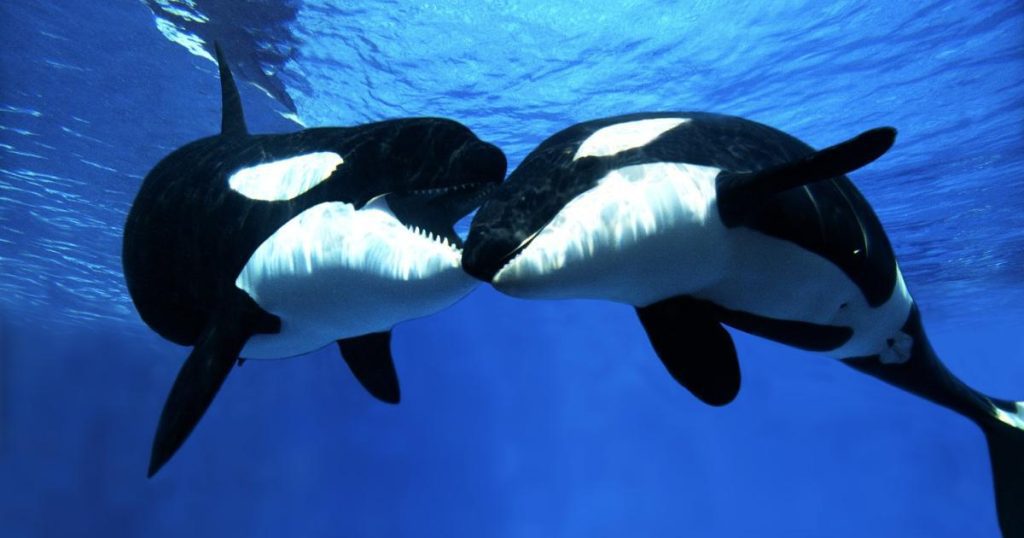In South Africa, a pair of orcas drive and kill great white sharks from their natural habitat. Published Thursday in the African Journal of Marine Science, great white sharks are now fearfully avoiding the coastal region around Gansai, once considered one of the world’s most legendary sites for watching giant predators, a study reported Thursday in the African Journal of Marine Science.
Since 2017, eight great white sharks have washed ashore in the area after an orca attack, according to the study. Seven of them lost their livers, and some lost their hearts – wounds evidently from the same pair of orcas. The researchers suspect that it also killed other great white sharks that had not washed ashore. Orcas (killer whales) are distributed worldwide and feed on fish and seals, among other things.
An area famous for shark diving
The results of the study, which began in 2017, indicate that the attacks caused rapid and long-term mass displacement of great white sharks. Great white shark sightings have “significantly decreased” in Gansbaai since 2017. Gansbaai is located in the Western Cape province of South Africa. The place attracts tourists from all over the world who want to see great white sharks from diving cages.
“We observe a widespread avoidance strategy … the more orcas visit these sites, the longer the great whites stay away,” said study lead author Alison Towner. Towner said the absence of great whites is unprecedented in the region and is changing the marine ecosystem. The lack of great white sharks, for example, has led to greater numbers of head fur seals. This has a negative impact on the endangered African penguins that are hunted by seals.
Data that has not yet been published indicates that the presence of orcas, also known as killer whales, is increasing in coastal areas of South Africa. It is thought that the orca may belong to a rare shark-eating subspecies that preys on at least three types of sharks. Towner said the changes in fishing behavior could be linked to declining numbers of various fish that were previously prey for orcas.

“Food practitioner. Bacon guru. Infuriatingly humble zombie enthusiast. Total student.”







More Stories
KaDeWe stops selling meat and sausages
Another earthquake near the giant Naples volcano
Trump wants to block Harris' access to donations